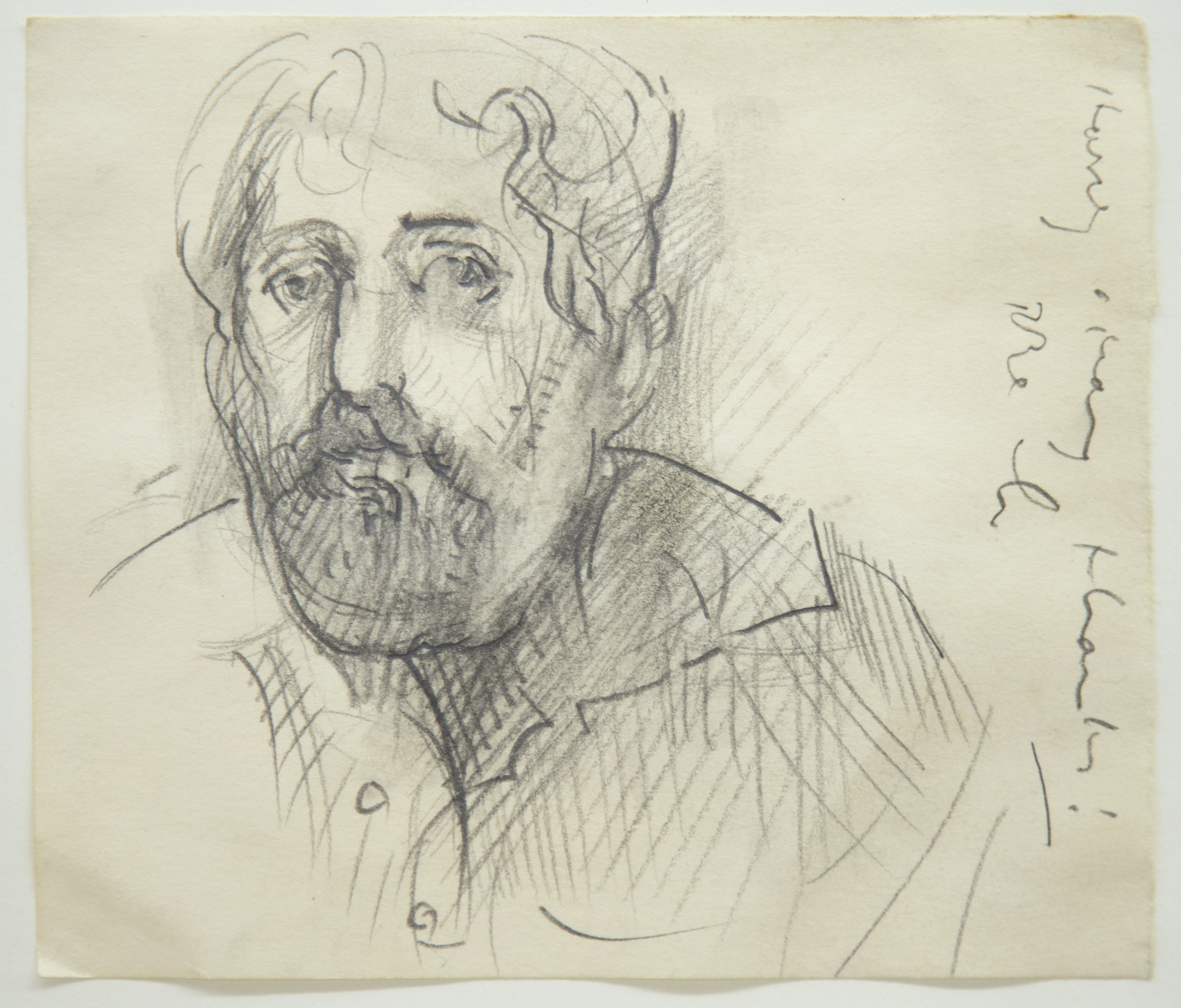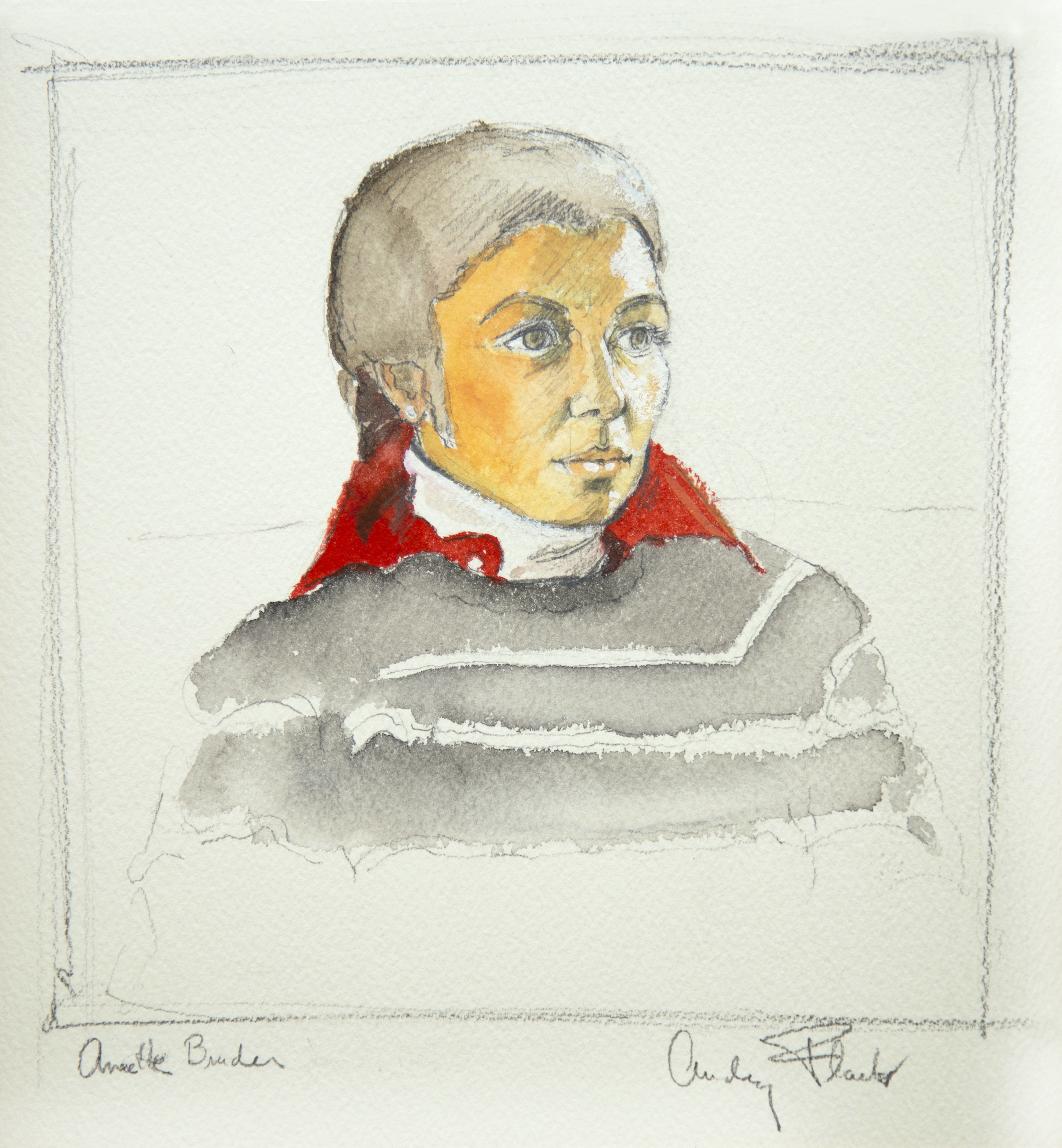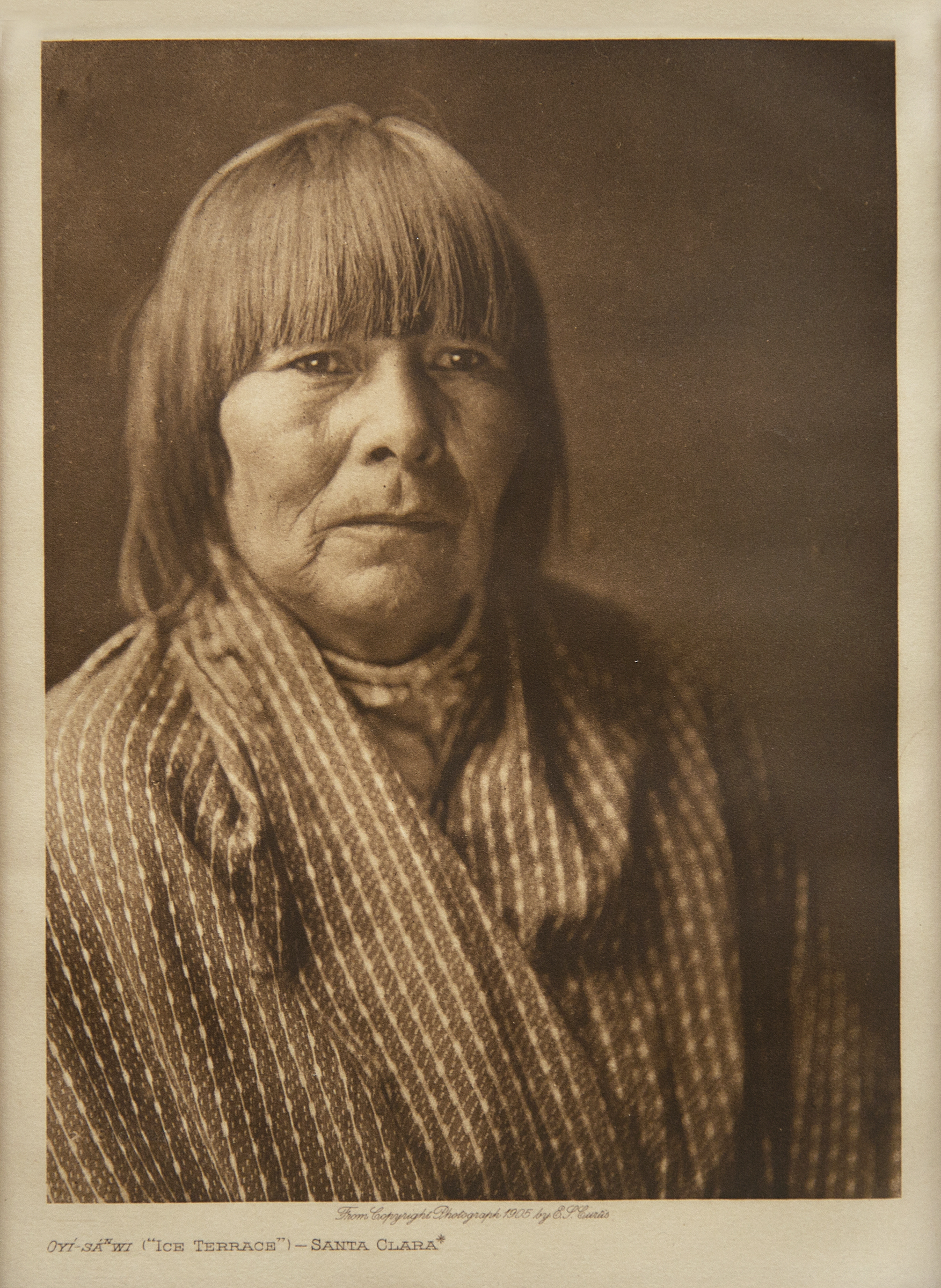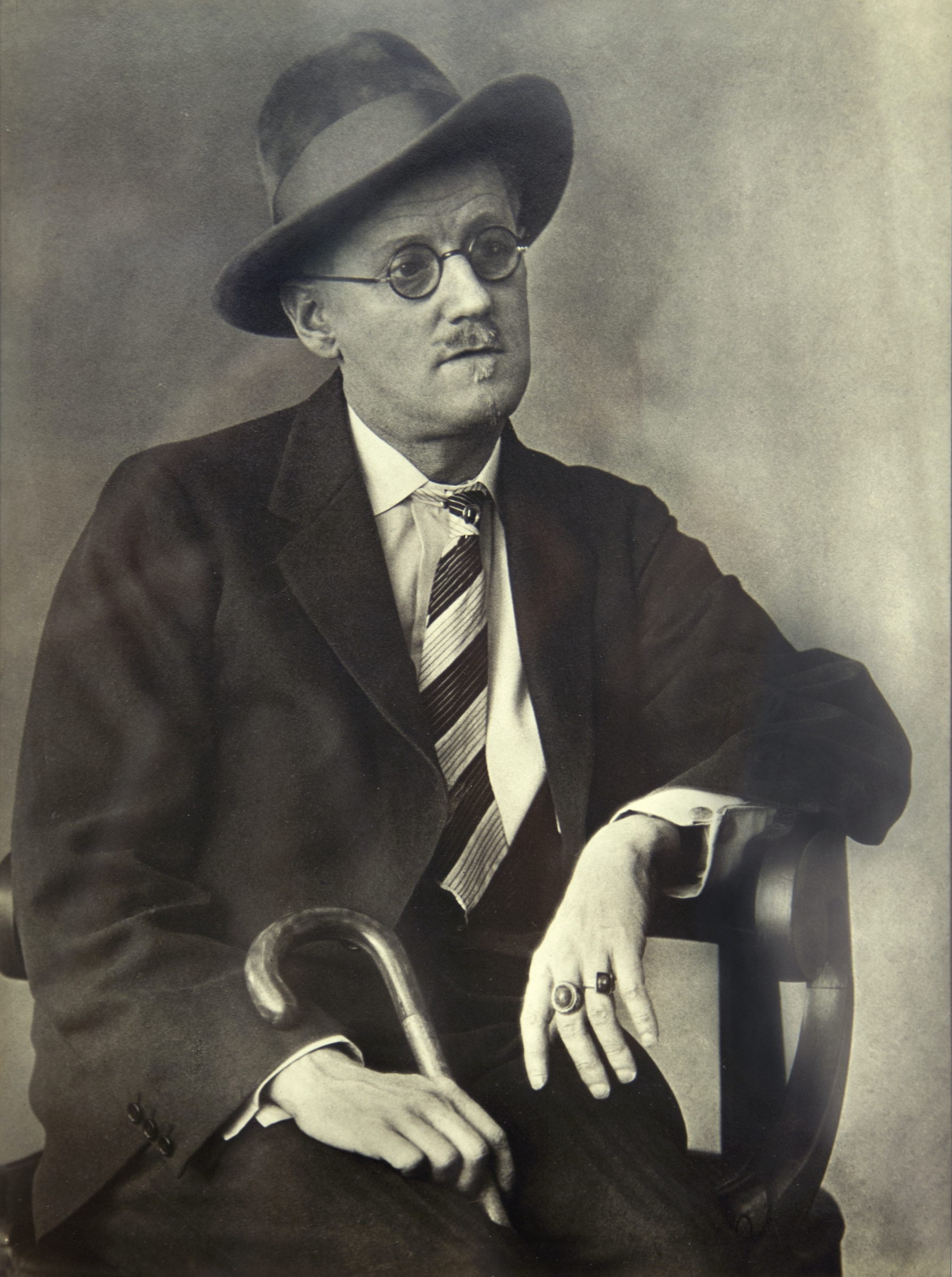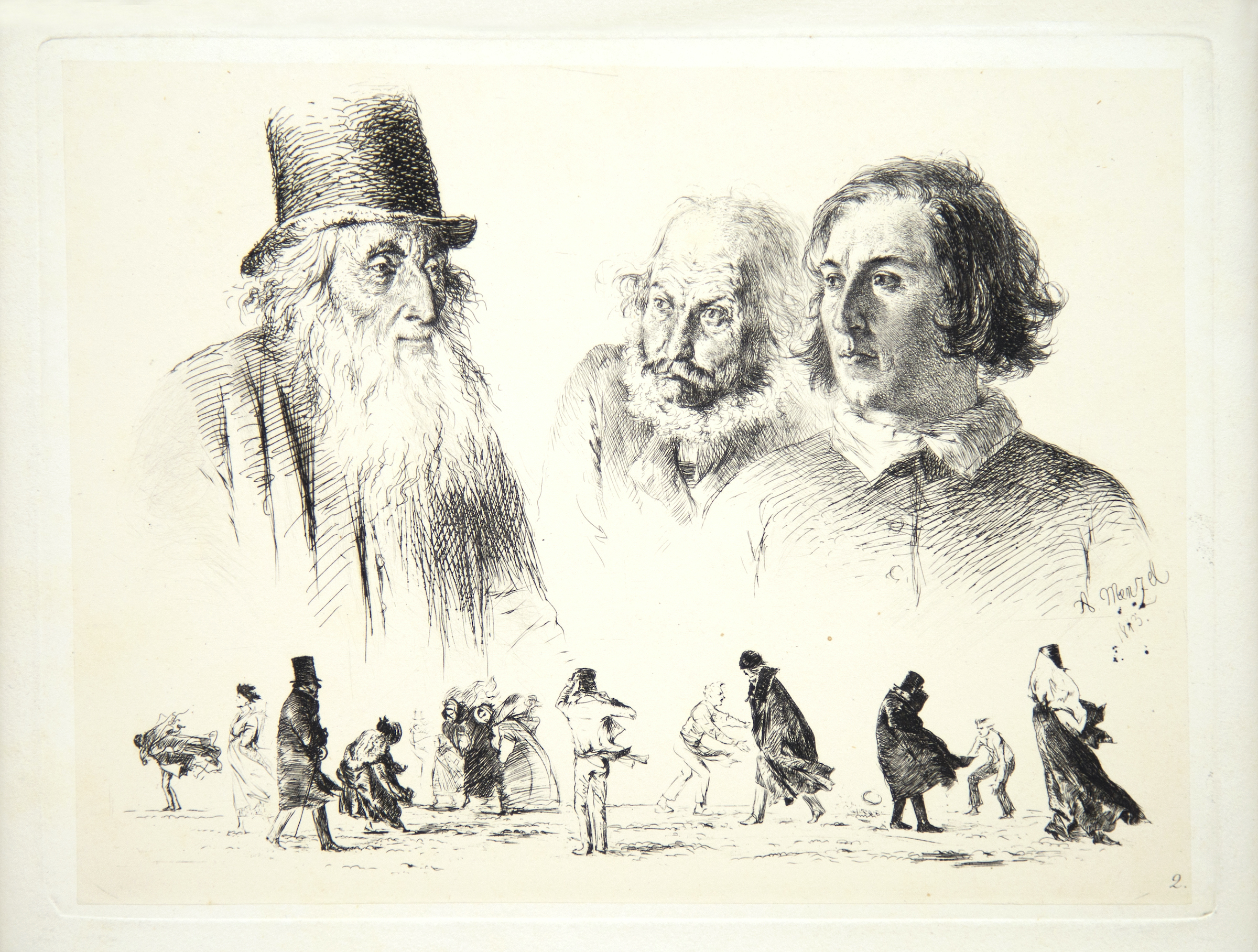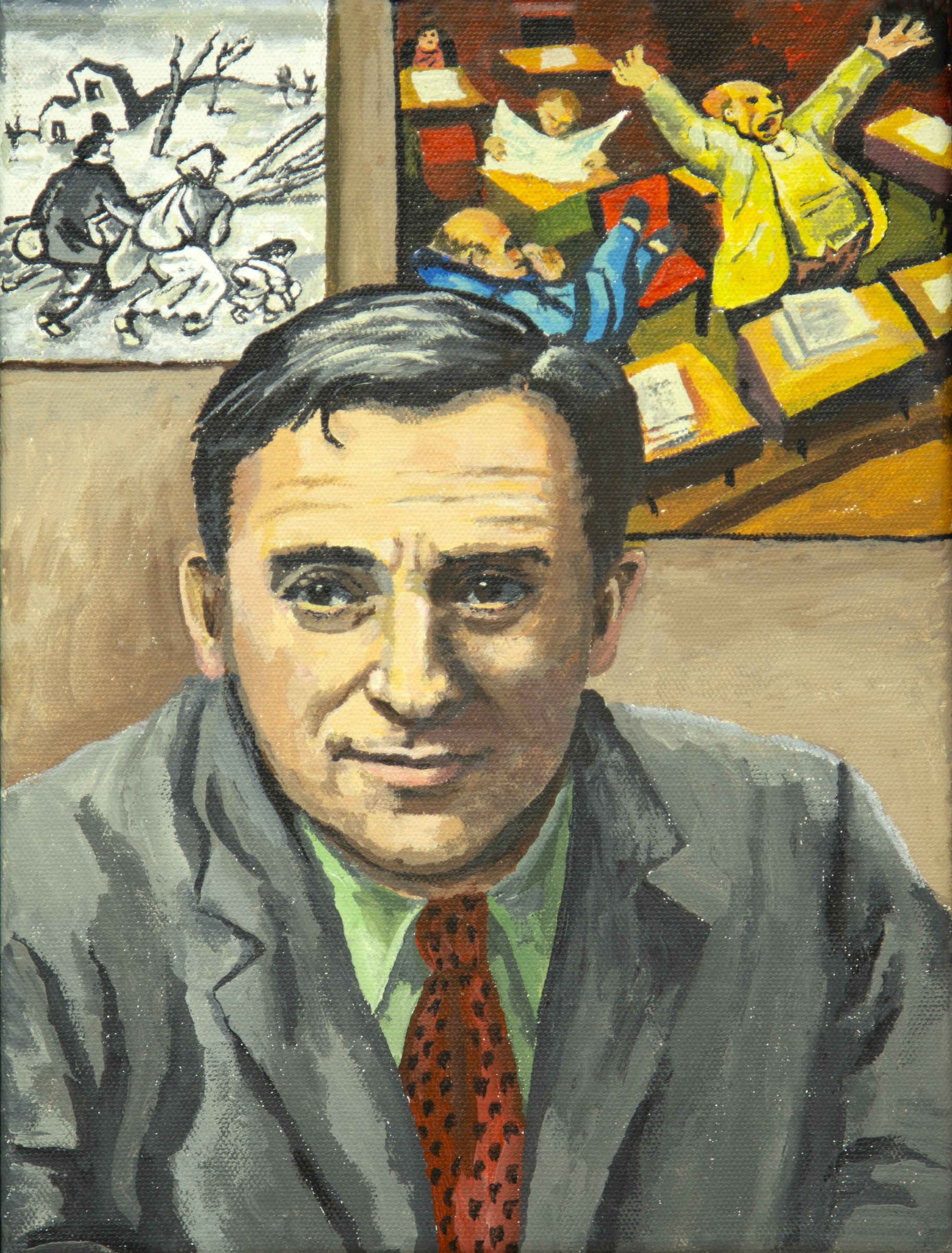In works by Flack and Bileck, we see the attributes of “pure” portraiture in its most familiar form. Wed by technical facility in their chosen medium, these artists’ works give the feeling of direct observation from the model. The slow, measured timing of observation and mark-making is evident in these realistic portrayals of specific individuals. Curtis and Abbott’s works are traditional photographic records of the essential characteristics and distinct portraits of their subjects. And Menzel’s earlier 19th c. print studies of individual visages reflect their time, and yet, are timeless in feeling.
Nancy Weinberg’s impassioned portrait of activist artist William Gropper shines a light on the human condition. His lifelong commitment to documenting social injustice pervaded his paintings, drawings, and prints. In her painting, she incorporates his own works in the background, so we can never forget the political and cultural issues that influenced his life and art. This work is one of a series of 46 portraits of personal heroes and heroines by this noted artist.
Marvin Bileck | Audrey Flack |Edward Sheriff Curtis | Berenice Abbott | Adolph Menzel | Nancy Weinberg
Marvin Bileck
Sketch of Harry, 1940-2000
Graphite on paper
Gift of Harry Kramer, 98.10.2
Audrey Flack
Annette Bruder, n.d.
Watercolor
Gift of Harold Bruder, 86.17.4
Edward Sheriff Curtis
Oyi-san wi (Ice Terrace), Santa Clara, 1905
Photogravure
Gift of Jack Zevin, 2016.5.3
Berenice Abbott
James Joyce in Paris, 1928
Gelatin silver print
Gift of Dr. Stanley T. Lewis, 61.19
Adolph Menzel
Kopfe und Figurenstudien (Studies of heads and figures), 1843
Etching
Gift of Audrey McMahon, P 28
Nancy Weinberg
Portrait of an American Artist: William Gropper, 2015
Acrylic on canvas
Courtesy of a private collection
Images by Jacqui Hopely Monkell

